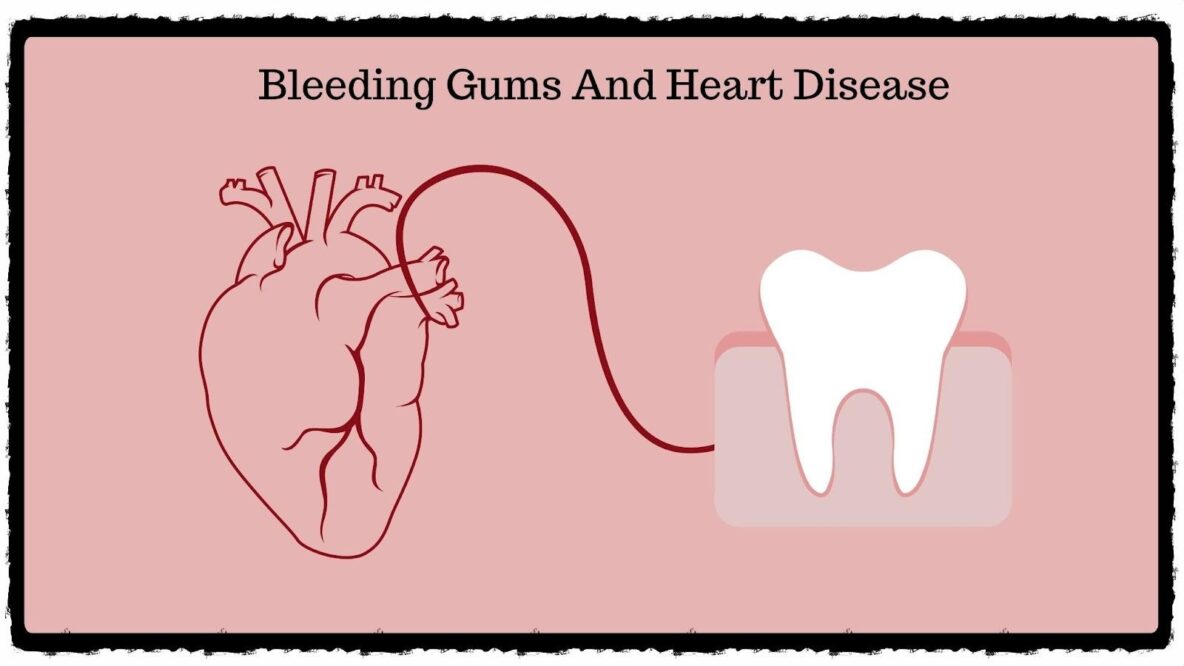You probably weren’t aware but your dental wellbeing can influence something beyond the appearance of your teeth. Your dental hygienist presumably reminds you to brush and floss with the goal that your teeth stay pearly white, yet these healthy habits can really influence different parts of your body as well – specifically, your heart. Keeping your teeth and gums healthy can also help you prevent heart disease.
Research shows that individuals who have periodontal disease are twice as likely to develop heart disease, and their risk could be even greater than those who have high cholesterol.
Gum disease :
Some reasons such as diabetes, pregnancy, specific drugs, poor diet or hereditary conditions can increase the risk of gum disease. It is additionally more common in men, people of age 65 and smokers.
By not following a regular oral maintenance schedule, plaque develops on the teeth. Plaque is a film of microorganisms that sticks and begins the process of decay. Everybody has some degree of plaque since it forms from saliva, fluids and from carbohydrates. Assuming plaque isn’t removed, it solidifies and becomes tartar that must be removed by a dental specialist. This bacterial buildup then causes cavities because it breaks down the enamel that protects teeth against decay. If this decay reaches the gum line, gum disease, can develop.
The earliest form of gum disease is known as gingivitis. Gingivitis may present with redness, swelling, tenderness, bad breath and bleeding while brushing and flossing. Gingivitis can affect the gums around one to all of the teeth. Fortunately, gingivitis is reversible if you are able to develop healthy dental care routines such as brushing and flossing twice a day and booking dental checkups twice a year.
However, when gingivitis goes untreated for an extended period of time, it can develop into periodontitis, which is an advanced form of gum disease that is more difficult to treat. When tartar is left to sit on the gums for a prolonged period of time, it harms the tissue and causes the gums to pull away from the teeth. This is known as “receding gums.”
This causes pockets to form between the gums and teeth which can allow bacteria to enter. Teeth will become loose because of the lack of periodontal attachment.
During the early stages of periodontitis, dental specialists can treat the contamination utilizing non-surgical techniques like scaling, root planing and antibiotics. Advanced periodontitis will usually require surgery to help prevent tooth loss and the spread of infection.
Gum Disease and your Heart :
So what does gum disease have to do with the heart? People with gum disease are more likely to have a higher risk of heart attack and stroke. Heart disease is one of the leading causes of death in the world, so researchers are interested in how to reduce it and the prevention of gum disease could be a solution.
However, while research hasn’t found that gum disease will directly cause heart disease, there is a clear link between the two. The possible reason for this is related to inflammation, which is the body’s natural response to infection. When gingivitis or periodontitis is present, gums will be swollen and inflamed due to bacteria. If this inflammation goes untreated and becomes chronic, this will trigger inflammation in other areas of the body. Chronic inflammation increases the risk of heart disease because it can result in plaque buildup in the arteries or even trigger blood clots.
Researchers have also found that bacteria in the mouth can be mixed into the bloodstream which can lead to inflammation within blood vessels, leading to atheroma formation, or a buildup of plaque in the arteries, which can cause atherosclerosis. In addition, studies have shown bacteria from the mouth in the blood vessels of individuals who had strokes.
Moreover, tooth loss as a consequence of gum disease is related to coronary heart disease. Specialists studied adults between 45 and 60 who had 25 to 32 natural teeth at the start of the study. Those who had lost two or more by the time of the follow-up exam after a few years had a 23% higher chance of developing heart disease.
While there is little doubt that the association between these two infections is there, scientists can’t conclude causation between the two. For example, people who have good oral hygiene habits might also take better care of their overall health, thus leading to a reduced risk of heart disease. Gum and heart disease also share common risk factors including high blood pressure, smoking and lack of exercise, to name a few.
Warning Signs :
The link between periodontal disease and heart disease is clear. To help you protect your gums and heart, watch out for these warning signs of periodontal disease:
- Red gums that are swollen or tender.
- Gums that are prone to bleeding when you brush or floss your teeth or when eating hard or tough food.
- Gums that are receding from your teeth.
- Having loose or separating teeth.
- Calculus between your gums and teeth.
- Persistent bad breath.
- A change in your bite.
To learn more about gum disease or inquire about dental services in Edmonton, call “Signature Smilez Family Dental” at 780-478-2100 or email at info@signaturesmilez.ca .

